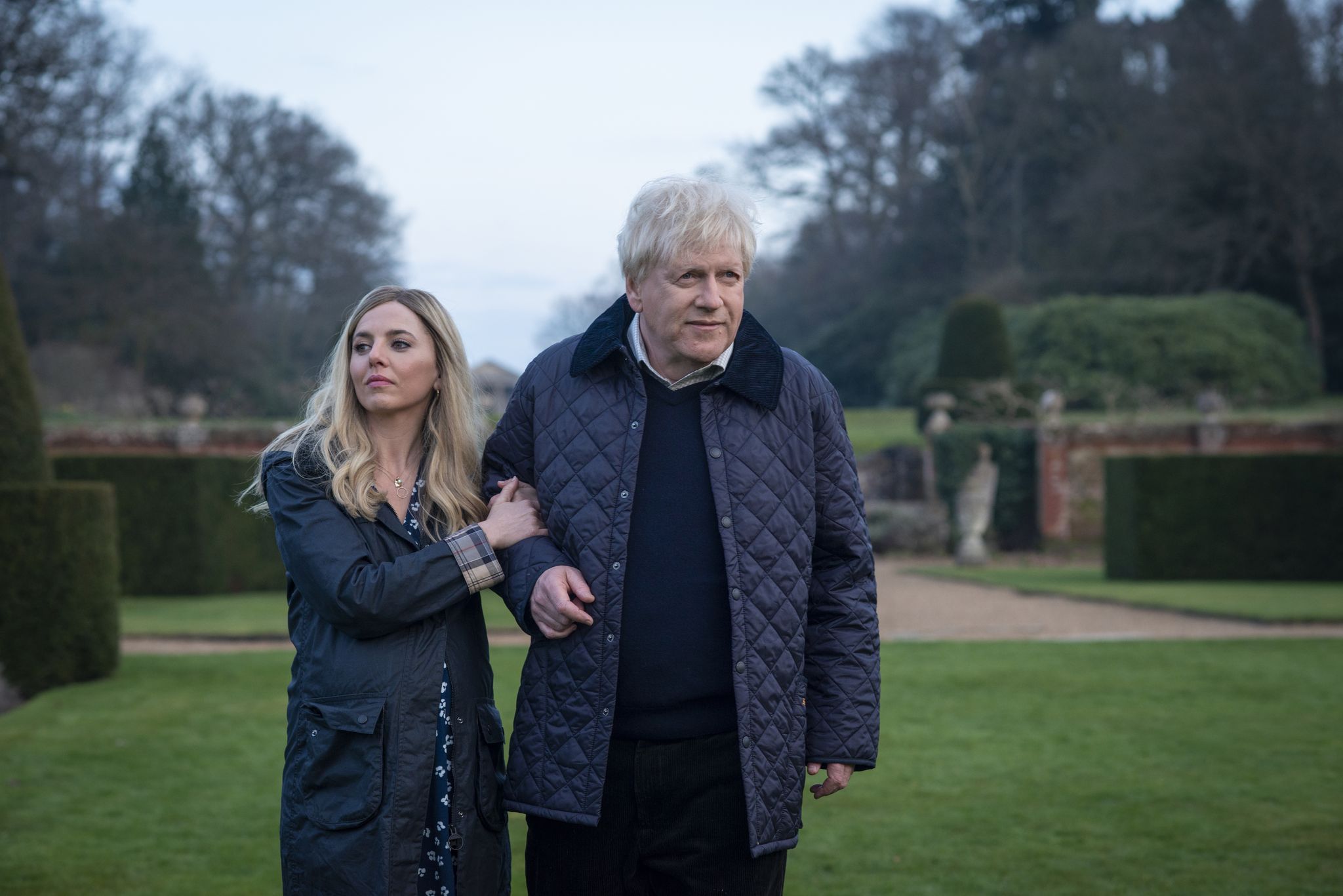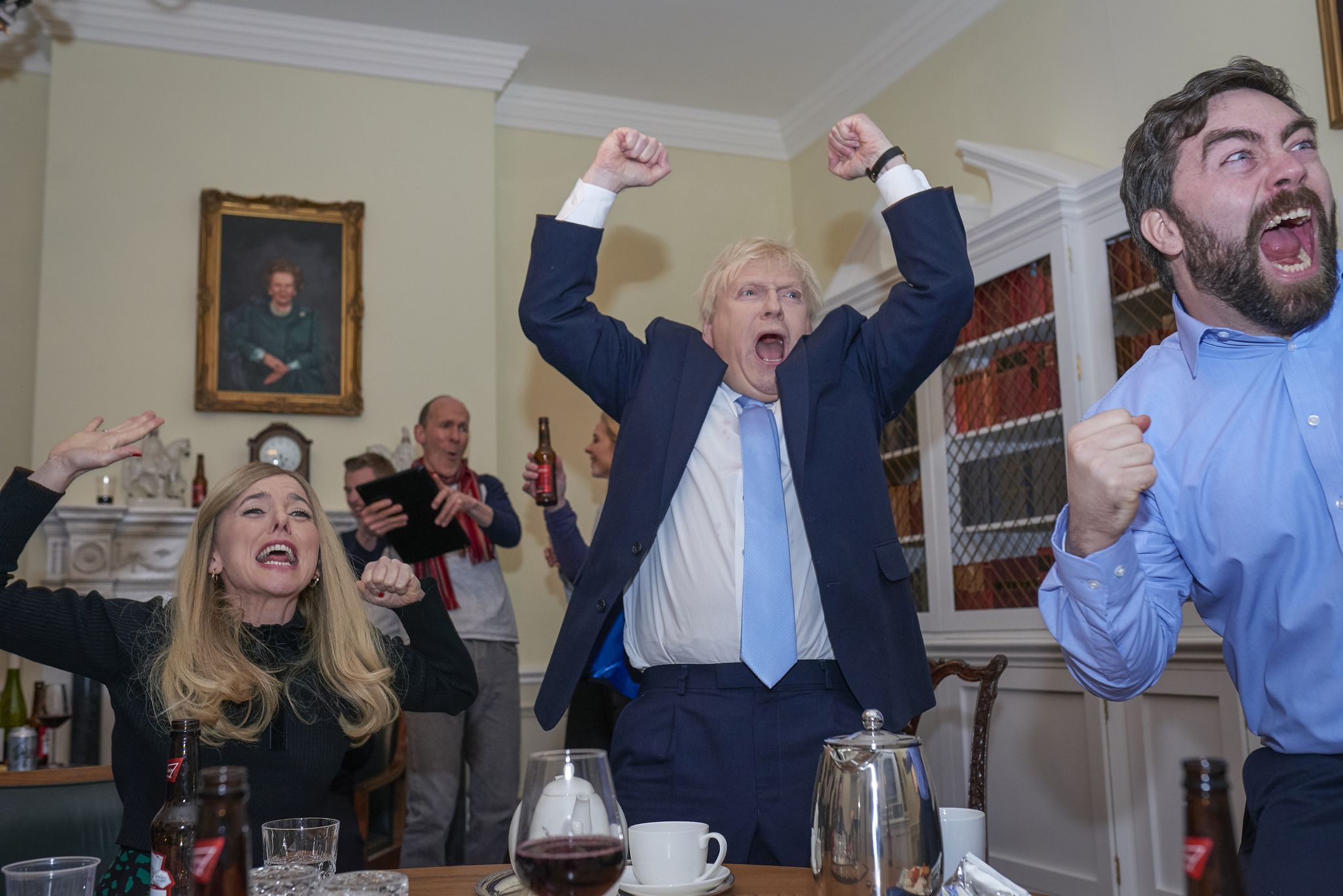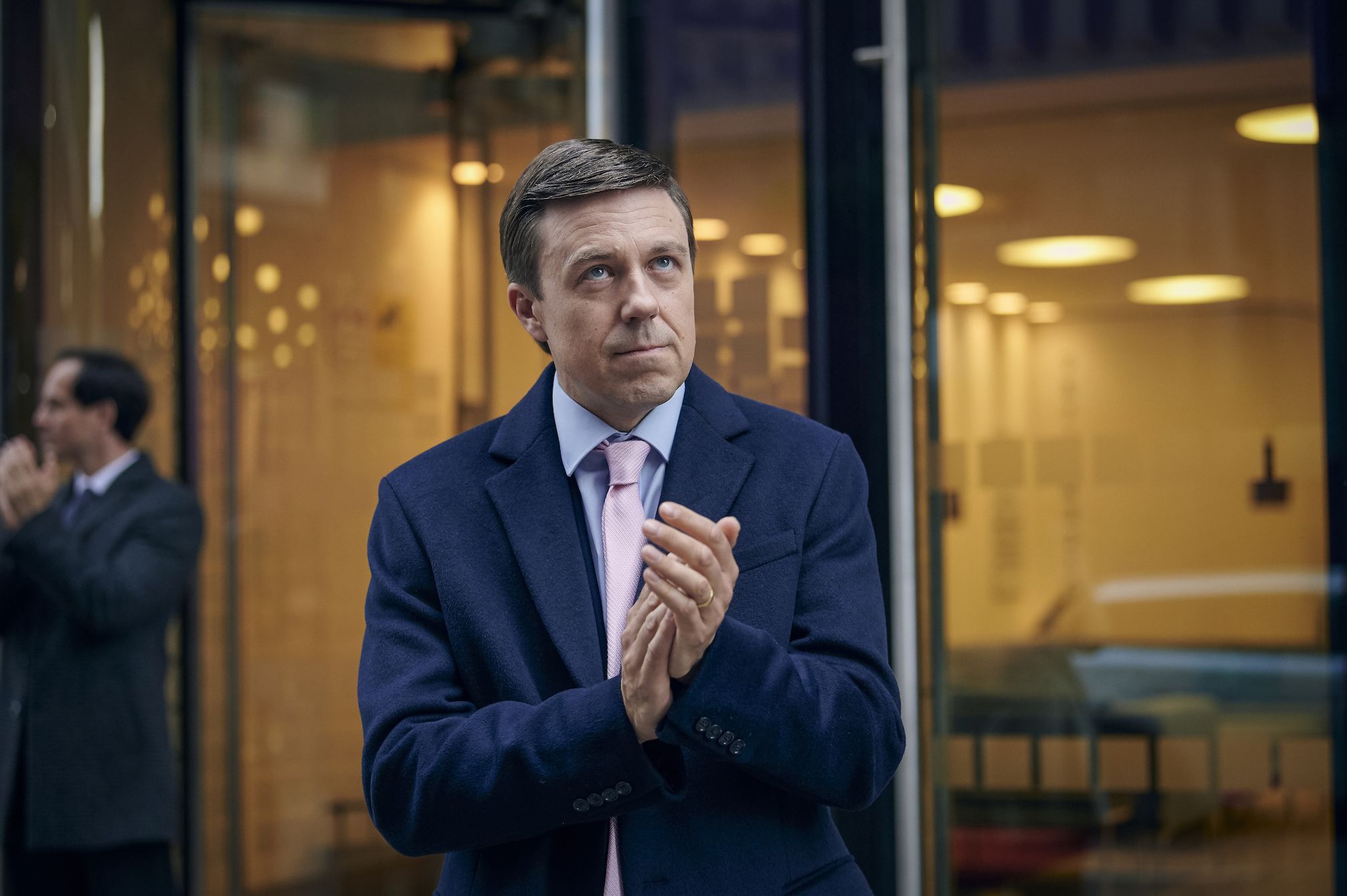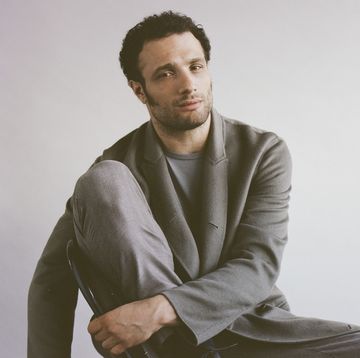In Michael Winterbottom’s new drama about the recent – arguably ongoing – Covid crisis, This England, erstwhile British Prime Minister Boris Johnson (Kenneth Branagh, for better and worse, unrecognisable) faces a personal and professional quest: to finish a biography of Shakespeare, commissioned for the 400th anniversary of the bard’s death (which took place, by the way, in 2016). Johnson blusters through the six-part series quoting Shakespeare, reminiscent of an eager A-level student: “Beware the Ides of March,” he mutters to himself one grey morning (and sure enough, the Julius Caesar reference precedes governmental machinations). On a dark and stormy night, as Johnson is making headway on the book, he intones, “No one has ever used the weather more dramatically or effectively than Shakespeare." It’s possible to read all sorts into this, and Winterbottom has made frequent use of a literary conceit, from 2011’s Hardy adaptation, Trishna, to 2003’s Code 46, a retelling of the Oedipus myth. Is this man better suited to spouting Shakespeare than running the country? Is he a literary man or swaggering amateur? But it probably won’t have been the first time these questions have crossed your mind.
One of the main problems with This England, which is available now on Sky Atlantic, is that it examines a figure and a time that are tediously familiar. The series dramatises – and you may be able to just about recall this – the first wave of the coronavirus pandemic, charting its Wuhan beginnings, swift international takeover and eventual British invasion. It’s set against Johnson’s own, sometimes equally turbulent, life: his appointment as PM in the summer of 2019, his COVID infection and subsequent hospitalisation, and the birth of his sixth child, a son, Wilfred, courtesy of his third wife, Carrie (Ophelia Lovibond).
Against all the doorstep pot-clanging, the contact tracing, the neighbourhood Whatsapping, is a mixed bag of Westminster drama. Dominic Cummings (Simon Paisley Day) darts about Number 10, firing fresh-faced hopefuls; Matt Hancock (Andrew Buchan) – here a health minister with a less-than-ideal boss – does his best to prepare for a situation, which just about everyone agreed was unprecedented. But honestly, do we still care? The real-life Cummings, undoubtedly a consequential figure in UK politics at the time, has blogged a little too often, tweeted too much to be of much interest anymore. It doesn’t help that James Graham’s version of Cummings, played by a feverish Benedict Cumberbatch in 2019’s Brexit: The Uncivil War, was a spikier, more entertaining take. The drama around Hancock feels fresher, though it cuts off before anything gets too juicy (Hancock’s affair with aide Gina Coladangelo is relegated to the epilogue).
It was a strange time, and strange times can make for good television, but they’re not usually this close to such recent history. The Crown, in its classy retelling of tawdry royal gossip, at least gives it a few decades. For some viewers, it will be too much, too soon. The piling deaths, the alleged failures over lockdown, the Barnard Castle of it all: no, thank you. There was little mystery to this ongoing slog when it was actually unrolling; we all watched the news conferences, read the headlines, refreshed our timelines. Revisiting it so soon feels masochistic, and worse, boring.
But for others, it might not go far enough. It presents the ongoing crises – both the world’s and Johnson’s – as an extended news reel, not saying anything new about the pandemic (you might remember that it was bad) and even less about the politicians in charge (about whom, you also might remember, people had many opinions). This England is a straightforward show, which doesn’t have to be a bad thing. A linear retelling of turbulent times can be clarifying, important even, and the scenes showing how Covid strained care homes and UK family life are undoubtedly moving. But, fatally, the series lacks tension, a point of view.
Branagh – who certainly looks like a Johnson, if not Boris himself – and his relationship with Carrie is the most compelling part. Of course, we know little about their life together, but the drip-feed of rumours has generated plenty of projection. Is Carrie a Lady Macbeth type, influencing Boris’ decision-making? Was she pushed aside by a Cummings-led campaign? This England paints a nuanced picture of a political marriage, aided hugely by Lovibond’s pleasingly posh, lived-in performance, where all these could be true. Carrie is, at turns, a worried expectant mother, a privileged party-goer, and someone who knows exactly how to pin down Boris (mostly by making references to Churchill). It’s refreshing to see Lovibond breathe live into someone who most people will know as "Princess Nut Nut" (Cummings’ rumoured nickname for her). For some, their domestic scenes will be likely unbearable. Do you want to watch the prime minister and his partner swimming in the azure seas of Mustique? Doubtful! But it is at least new territory for viewers, and provides more room for Winterbottom to manoeuvre.
Near the end of the first episode, Boris and Carrie are sprawled on a sofa, watching virus action-thriller Contagion. Kate Winslet, playing the film’s doomsday doctor, is explaining what the hell the R number is, a term no one had ever heard of and was suddenly everywhere. “It’s a bit like homework,” says Branagh as Boris, swilling a glass of red. It’s a moment many will be familiar with – how the stuff of disaster films became everyday life. And, in that moment of connection, you catch yourself: why was the UK’s prime minister learning about crucial science terminology from a 2011 Steven Soderbergh film?
Which of course he didn’t. Or did he? Because, given the erosion of our expectations of the man, honestly, it seems quite plausible. It’s here, in the Johnsons’ private, imagined moments, that Winterbottom’s drama works best. Another playful example: Carrie’s baby shower, at which the presents are blue: not an indicator of the child’s gender, but its likely political affiliations. The event occurs at Chequers, the Prime Ministerial holiday home in Buckinghamshire, as the virus is spreading throughout the UK. It would be possible to read this as a moment of grand insensitivity, with a helping of elitism. But as Lovibond recently told Esquire, “I play the scene of an expectant mother having a baby shower. The fact is, that baby shower occurred during the pandemic so what you as a viewer infer with that juxtaposition speaks for itself.” In that ambiguity, This England finally strikes on something interesting.
In fact, it’s only in the moments when dramatic license is exercised, like the wine-swilling-on-the-sofa and baby-shower scenes, that the show possesses some satirical spark. For the most part, the true story of what happened, the events as they actually played out, offer more bathos than the television show can muster. (Johnson’s masterwork about the life of Shakespeare? Still nowhere to be seen.) Perhaps, like the figures at its centre, Winterbottom’s drama should have taken a few more liberties.
‘This England’ airs weekly on Sky Atlantic from 28 September, while all episodes are available to stream
Henry Wong is a senior culture writer at Esquire, working across digital and print. He covers film, television, books, and art for the magazine, and also writes profiles.















